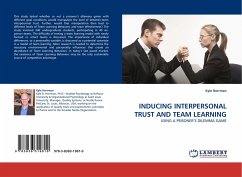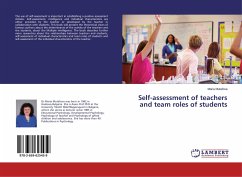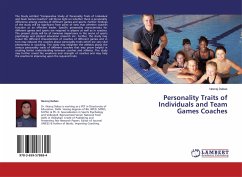This study tested whether or not a prisoner s dilemma game with different goal conditions would manipulate the level of between-team interpersonal trust. Further, would that manipulation then lead to different levels of Team Learning Behaviors and team effectiveness? The study involved 240 undergraduate students, participating in 40 six- person teams. The difficulty of testing a team learning model with newly formed vs. intact teams is discussed. The importance of individual differences, or a personality variable, is discussed as a potential covariate in a model of team learning. More research is needed to determine the necessary environmental and personality influences that create an abundance of Team Learning Behaviors. In today s fast paced market, the existence of Team Learning Behaviors may be the only sustainable source of competitive advantage.
Hinweis: Dieser Artikel kann nur an eine deutsche Lieferadresse ausgeliefert werden.
Hinweis: Dieser Artikel kann nur an eine deutsche Lieferadresse ausgeliefert werden.








